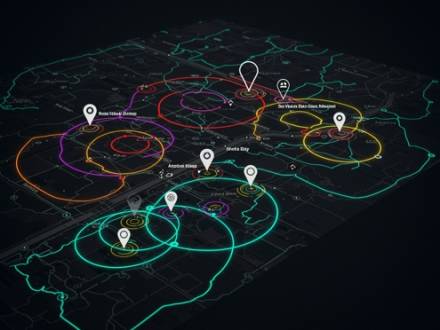Wells v. State: Texas Court Cautions Police on Geofence Warrants
 Can the police use your smartphone location history to investigate crimes, even if you have never been a suspect? That is the key question in Wells v. State, a new decision from the Texas Court of Criminal Appeals that could reshape the future of digital privacy in criminal investigations.
Can the police use your smartphone location history to investigate crimes, even if you have never been a suspect? That is the key question in Wells v. State, a new decision from the Texas Court of Criminal Appeals that could reshape the future of digital privacy in criminal investigations.
At The Dameron Law Firm, we stay on top of emerging search and seizure laws to protect the rights of our clients. This recent case highlights just how far law enforcement can go and when it may go too far. Call our Fort Worth criminal defense attorney right away if you are being investigated for or accused of a crime.
What Is a Geofence Warrant?
A geofence warrant gives police access to location data from devices (like phones or smartwatches) in a specific area during a certain time frame. Law enforcement can request user location histories from companies like Google to try to identify people who were near a crime scene, even if those people had nothing to do with the crime.
This is a powerful tool for police, but it also raises serious Fourth Amendment concerns about unreasonable searches and data privacy.
Wells v. State: A Cautionary Decision
In Wells v. State (Decided April 2, 2025), prosecutors in Texas used a geofence warrant to obtain location data from Google in connection with a robbery investigation. The defendant’s movements were matched to the location of the robbery based on this warrant.
But the Texas Court of Criminal Appeals issued a split opinion in the case, cautioning law enforcement about relying too heavily on this novel technology without more legal clarity. While the court did not outright ban geofence warrants, it raised concerns about their scope and constitutionality under the Texas and U.S. Constitutions.
The Court warned that the use of geofence data, without strict limitations, could amount to an unconstitutional dragnet, sweeping in innocent individuals without probable cause. The opinion reflects growing national concern about mass digital surveillance.
Why Geofence Warrants Are a Serious Matter for Criminal Defense in Texas
Geofence warrants may sound like science fiction, but they are already being used in Tarrant County and across Texas. If you have been arrested or charged based on digital location data, you may have grounds to challenge the evidence, especially if it was collected without a properly limited and specific warrant.
Geofence searches have sparked legal debates nationwide. In 2023, the ACLU published a report outlining concerns about geofence warrants and called for stricter oversight and transparency.
At The Dameron Law Firm, we fight to suppress illegally obtained evidence and protect your privacy rights under the Fourth Amendment.
How Dameron Law Firm Can Help With Unconstitutional Warrants
If you have been arrested and charged based on geofence or digital data evidence, it is essential to speak with an experienced defense attorney. We regularly:
- Challenge unconstitutional warrants
- File motions to suppress unlawfully obtained data
- Investigate how evidence was gathered
- Protect your rights under Texas and federal law
Call a Tarrant County Criminal Defense Attorney
Whether you are facing charges for theft, drug possession, or other criminal offenses, we are here to fight for you.Contact a Fort Worth Criminal Defense Lawyer today
Technology evolves quickly, but your rights remain. If you have been arrested based on location data or any kind of digital evidence, do not wait. Contact The Dameron Law Firm today at 817-222-0624 to schedule a consultation.

 817-222-0624
817-222-0624







